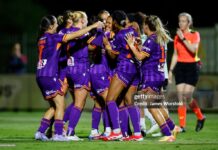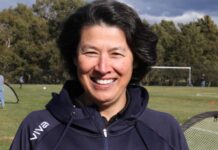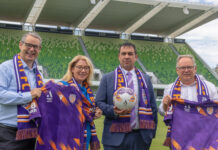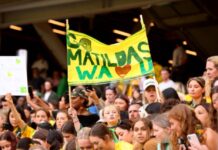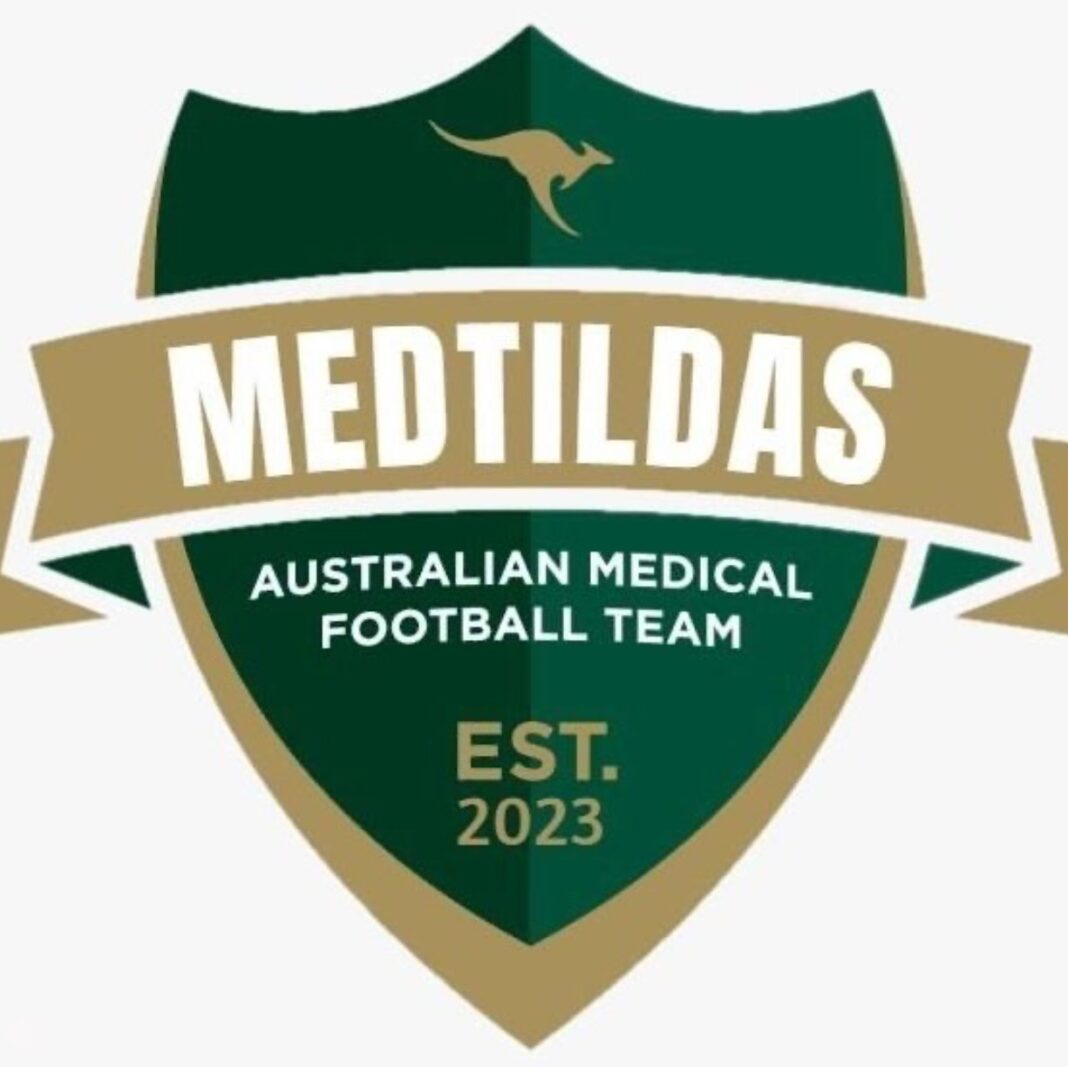
History will be made this month when Australia’s newest national women’s football team (the Medtildas!) compete in the inaugural women’s edition of the World Medical Football Championships. This edition of the tournament is the first to be held in Australia, from July 20th to 27th in Maroochydore.
The Medtildas are comprised entirely of medical practitioners. The Australian men’s equivalent (the Docceroos!) was founded in 2003.
We spoke to Medtildas coach Michaela Thornton (click here to read more about her, including her career in physiotherapy) about preparations for the tournament.
View this post on Instagram
“Dean Ugrinić, the coach of the Docceroos [as well as the Canberra Croatia men’s NPL team] sent me a message one day, ‘What do you think about maybe coaching? We’re thinking about having a women’s tournament and team this year onwards’.
“And I said, ‘Ah, not really a coach, I’m just a player, I don’t fancy myself as being a coach at all’. Then he said, put in an expression of interest and see what you think, because there are a few people that are interested.
“So then I was nervous. I put in my expression of interest and they got me back on a zoom interview. And it was funny because one of the first questions was ‘What’s your coaching philosophy? How do you like to coach and what kind of coach would you be?’.
“I was like, well, I’m not a coach, but I have been coached by coaches of the Matildas – Connie Selby back in the day – as well as [Socceroos assistant coach] Robbie Hooker; a vast number of coaches at different levels. I know what I like from a coach, and what I don’t like. Things that I value are communication and transparency, and halftime talks that are in dot points rather than essays. So I said I guess I would be coaching the way that I would like to be coached. They [must have] liked that, they called me back and said it’s yours, if you want it. And then I sort of ummed and ahhed a little bit. Sam, my husband, asked ‘Do you really want to do another thing in your life’? And I thought while we were waiting for the callback,
…it’s win-win really. If I don’t get the gig then my life stays the same and I don’t add another layer of football. If I do get it, then it’s awesome, to be one of the pioneers for this entire setup.
Since agreeing to the role, Thornton and the Docceroos committee settled on the team name and logo, but there was so much more to put in place.
“In my initial talks with the board they stated ‘We only want you to focus on coaching, you don’t have to worry about anything else’. But actually there’s just me, you know, there was no assistant coach, we didn’t have a manager or physio. The boys have a physio, Luke, who’s on the committee of the Docceroos, and he’s been really great. He’s like me in a lot of ways. He’s the physio and the admin guy but of course, it’s not his job to be our physio, so we’ve been trying to be mindful that we don’t use and abuse him too much.
“We had trials in October and locked everything in – an assistant coach (Kristian Collins, well known for his involvement with Futsal in Canberra; he’ll double as coach of a second Australian team for these championships), a manager, and a physio, so it’s starting to come together. But there’s a lot of teething problems, like designing kits, and all these little bits and pieces that I don’t normally have to worry about, like field bookings.”
View this post on Instagram
Interest was high at the October trials, with over 60 potential players from all over the country taking part. The event has multi-dimensional appeal: a chance to be part of our country’s football history; a tournament at the warm(er) Sunshine Coast in the Australian winter; and – for one of the most time-poor vocational cohorts in society – the opportunity to combine the tournament with learning opportunities that contribute to their annual professional development (PD) obligations.
“One of the players was saying they have to do 150 professional development hours in a year. So what we do is each camp and trial, we run a series of short lectures. At one camp, I presented on prehab, warm-up, and injury risks. [There is a wide variety of] expertise; a paediatrician will do a talk on common injuries in young kids and then the ED (emergency department) doctors will talk about common injuries there, for example.
“Each camp we get about four to five lectures. The actual championships, the World Medical Football Championships, are run concurrently with the World Medical Football Congress, an annual symposium.
View this post on Instagram
“Twenty-odd years ago, the idea was because it wasn’t all that popular getting people from all over the world to come for this annual medical symposium, they asked themselves what does everyone in the world love? Football. So they decided to run a football championship, as all these doctors get leave specifically for PD and they have to do the hours. If you’ve got to do it, why wouldn’t you [also] play football? So we play matches in the mornings from 8am to 3pm, and then the lecture series during the conference will run from three till around 6-7pm.”
With the first women’s championships in a far-flung destination like Australia, some countries indicated difficulties (financial and other) with obtaining full squads.
“This year, it’s a 7v7 format, with the aim of driving exposure and interest. Hopefully it will go to 9v9 next year and then full 11v11 the year after. We’ve got lots of players, and have picked two teams.
“We had a camp in Canberra at the AIS two months ago, and it conveniently happened to be during Canberra Olympic’s [Thornton’s NPL club] bye round. I asked the [Olympic] players, does anyone want to get together in a mixed reserves, U17s, whoever was free team and play an 11v11 game against us? My Olympic girls were like ‘What’s the quality, are they any good? Are we going to get pumped? Or are we going to pump them?’
And I said, put it this way, they’re all kind of like me.
“They all were athletic and good at football when they were younger, [although] some have come to it later in life. They were never quite good enough that they got picked up professionally and so they’ve all gone and got a real person job like me. And now later in life, they can find more time to dedicate to things that they enjoy, including football.
“They’re not going to come back and play week-in week-out football, but it’s easy for people like us to dedicate one weekend a month for the four weeks prior to the tournament and then one week for a tournament; they can commit to that.”
View this post on Instagram
Thornton’s appointment as coach is currently an open-ended arrangement. Next year’s competition will be in Ireland at around the same time of year (late July), with trials again tentatively planned for October this year. Funding-wise, a tournament in Ireland for the Medtildas will be an entirely different proposition.
“Funding is a really tricky one. We’ve got some sponsors and supporters, but we’re talking 500 to 1,000 dollars worth of sponsorship which won’t get us to Ireland. And so at the moment, we’re trying to figure out where we put those sponsorship dollars. We had trials in Melbourne, camp one in Melbourne, camp two in Canberra, and then the next two camps at the Sunshine Coast, then the tournament. Every player is flying in and out of these places and paying for accommodation but with [the professional development component] they can claim [some] as a tax deduction.
I think we had four balls when I ran trials and no cones… We [now have] 14 balls and some bibs and cones. That’s where we’re putting our sponsorship dollars for the moment.
It’d be nice to get a big investor or sponsor on board.
7v7 games at this year’s championships are an interesting challenge, even for a coach as well-credentialled as Thornton. She has plenty of experience in both futsal (5v5) and full-field football.
“We’re still working out formations and how you play 7v7. With a keeper and six on the field, I’m thinking of having three at the back. I was trying everyone in different positions and I’ve sort of settled on having [well-known ex-Canberra Croatia midfielder] Krista Hagen in the middle of that back three to distribute and direct things a bit.”
There are other player qualification and playing restrictions that the team must adhere to (see here for details), including:
- Players must be medical doctors who hold a Human Medicine University Degree
- There is no minimum player age
- Field size is 60×40 meters, with goals measuring 5×2 metres
- At all times, teams must have one over-30 and one over-35 player on the field (with armbands used to denote them)
- There is unlimited interchange
- Games are played with 35-minute halves
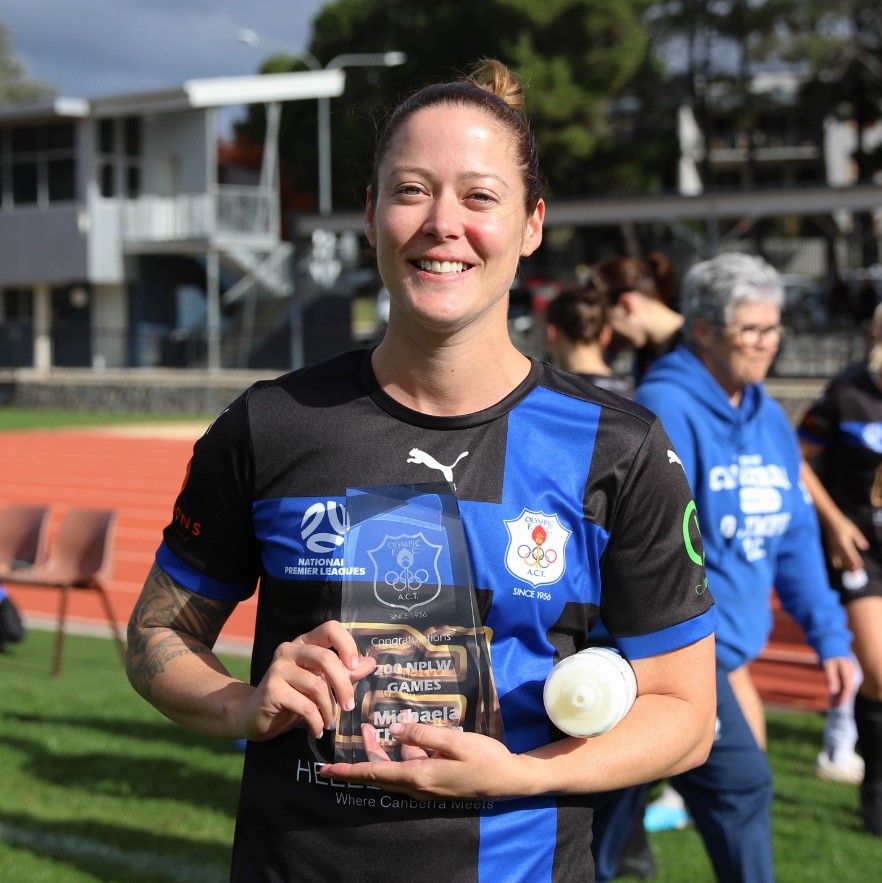
The Medtildas will be playing their opening game against the Australian B team. The other teams are from Brazil, Canada, New Zealand, Panama, and a mixed nations team – all of them largely unknown quantities.
“We’ve basically been stalking each other’s social media <laughs>. The Brazilian team put out a reel, a couple of weeks ago and I was like, oh God, they looked pretty good. The Canadian women’s team have a number of players who have actually played in the competition, but the only avenue till now was for them to play in the men’s Masters. So that’ll be interesting. But apart from that I don’t know anything, which is tough. I don’t know what New Zealand looks like. I don’t know what Panama looks like. I watched one reel that Brazil put up so apart from that I don’t really know what to expect.”
The games are free and open to the public – Maroochydore Football Club will host both the women’s and men’s competitions.
I think last year in Austria, the open men’s competition had 24 teams competing, so I think it’ll be a bit of football festival. There’ll be games on everywhere and anyone can come along.
While Thornton openly admits to enjoying and learning through this incredible experience, she signs off with a grin and a characteristic Thornton sentiment: “I’ll be filthy if we don’t win.”


